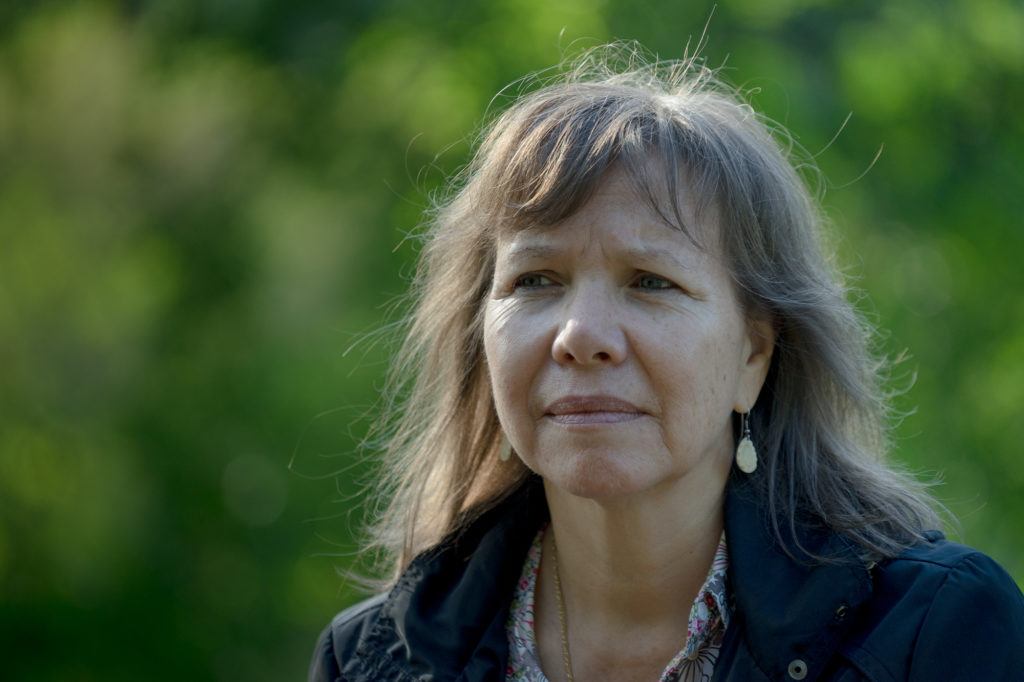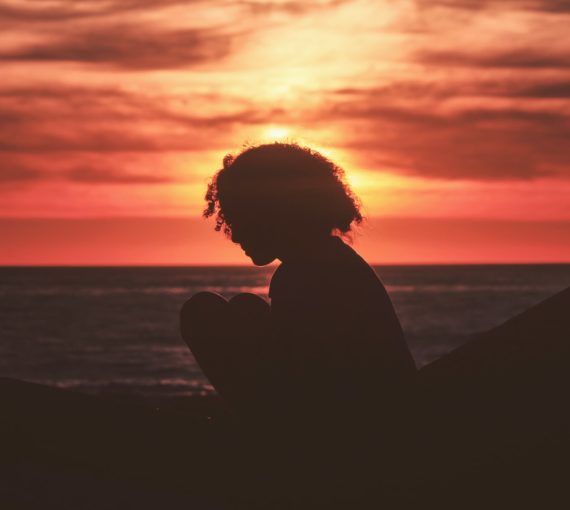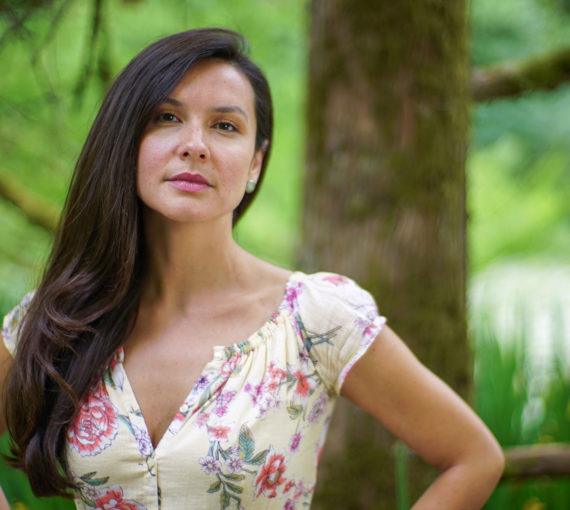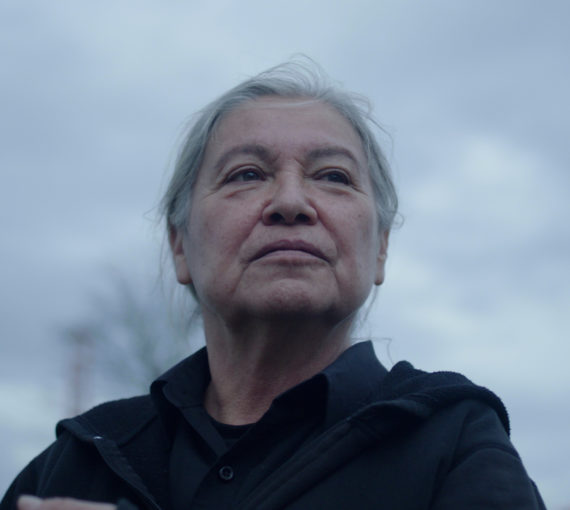
Katsi’tsakwas Ellen Gabriel, Indigenous Human Rights and Environmental Activist. (Photo: Alan Lissner)
Human rights are often described as being interconnected, interwoven, interdependent or interrelated. Indigenous philosophies reflect this as well, reminding us that we are not separate from the natural world, that we are all — human and non-human — related. To understand and promote human rights, we need to consider this interconnectedness; that is, when one right is violated, all rights are violated.
As life-givers, knowledge-keepers and decision-makers, Indigenous women know the importance of this holistic approach in nurturing our relationship to the land, our Mother, and the importance of water and ceremonies. Traditional teachings remind us of our roles in protecting water and land as part of our obligations to past, present and future generations.
Our connection to the environment has been a key principle of our philosophies and traditional teachings. Peoples’ well-being requires balance with the land. The importance of honouring the land and waters through respectful use, ceremony and song is a strong tradition that has not waned in spite of the genocidal settler colonial project. While our culture and language were forced underground, our traditional knowledge was guarded by brave women and men protecting the environment. This fact is now being recognized as one of the key components of surviving the climate crisis, according to a United Nations report on Climate Change.1
Indigenous-led women’s organizations, academics and front-line activists — or land defenders — are now influencing the public and policy-makers to protect the environment. At the same time, the colonial-created band council system remains in place, under the dominance of the Canadian federal government through Indigenous and Northern Affairs Canada.2 The flawed band council system3 remains one of the root causes of Indigenous Peoples’ land dispossession due to colonial laws and policies that lay the foundation for systemic racism.
To decolonize, we must restore respect for the roles and authorities of Indigenous women. This will help Indigenous Peoples enjoy the full extent of their human rights.
To decolonize, we must restore respect for the roles and authorities of Indigenous women. This will help Indigenous Peoples enjoy the full extent of their human rights.
The colonial, patriarchal narratives of Canada’s history books have caused marginalization of Indigenous women. Skewed versions of history deliberately promote the erasures of Indigenous women’s contributions. Efforts by Indigenous women activists and academics to correct this narrative have been met with resistance from governments that are, in essence, gatekeepers in protecting the colonial settler project. Despite the many reports4 of crimes against humanity perpetrated by colonial entities, any threat to the colonial narrative continues to meet effective resistance.
Since “contact” with Europeans, power and economics have been at the root of the dispossession of Indigenous Peoples’ lands and resources. But the Canadian founders’ genocidal colonial project to make the “Indian problem” go away has not succeeded.
Today, Indigenous women are speaking with louder voices, challenging the settler colonial narrative of Indigenous women as victims. Indigenous women are on the front lines, courageous and defiant despite the risk of being brutalized by paramilitary and military forces (which has been constant throughout Canada’s history of Indigenous Peoples’ land dispossession).
Today, Indigenous women are speaking with louder voices, challenging the settler colonial narrative of Indigenous women as victims. Indigenous women are on the front lines, courageous and defiant despite the risk of being brutalized by paramilitary and military forces.
Indigenous Peoples’ resistance to the colonial project has been viewed as “abnormal,”5 and has been dealt with by Canadian entities through constant surveillance, divide-and-conquer tactics, coercion and land defender criminalization. With the majority of Canada’s critical infrastructure owned by private corporations,6 Indigenous land defenders have been viewed as threats to Canada’s economy and security.
Protests remain the only peaceful manner of resistance against governments that are constantly influenced by their constituents’ opinions. This colonial praxis upon which Canada bases its relationship with Indigenous Peoples is, in essence, an authoritarian relationship.
Today, coercion and divide-and-conquer prevail. Developing alternative resolutions to long-standing historical land issues is impeded by colonial criteria and laws that violate human rights. Unilateral interpretation of “the rule of law” forces Indigenous Peoples into costly court cases. The justice system supports systemic racism and land dispossession.
In the efforts to decolonize, Indigenous women are taking their rightful place in restoring their roles as key and equal decision-makers. They are protecting our rights to self-determination. Some men in our communities are aware that decolonization means a world in which gender is no longer an issue, a world where we all work together to survive the climate crisis.
Sadly, one of the greatest challenges for women is the patriarchal influence that is deeply wedged in contemporary society and maintained through the Indian Act.
There is no inclusivity in decision-making processes on reserves unless the community has a good governance structure. Without this, the status quo of corporations making phone calls to band councils has helped allow colonial projects to proceed.
In the efforts to decolonize, Indigenous women are taking their rightful place in restoring their roles as key and equal decision-makers. They are protecting our rights to self-determination. Some men in our communities are aware that decolonization means a world in which gender is no longer an issue, a world where we all work together to survive the climate crisis.
Indigenous women continue to challenge the patriarchal and systemically racist system of the Indian Act. While our nations continue to be squeezed into smaller parcels of land, we resist. Simultaneously, our hearts and minds grieve for the thousands of Indigenous children who never came home from Indian residential “schools.” As more Indigenous communities find the bodies of children in unmarked graves, our resolve for this to never happen again remains solidly based in our traditions. This is a pillar of our resilience.
Current and past systemic racism frustrate the efforts of Indigenous Peoples and their supporters. As our homelands are given away to foreign nationals, systemic racism gives them protection under the security state in Canada.
Such obstacles seem insurmountable, yet we remain hopeful.
We have to be hopeful, because youth, children and those not yet born rely on us to make a better world where systemic racism is eradicated. Our dream is to work with others to build a positive legacy — a society that lives sustainably in balance with nature, something Indigenous women and their nations have always worked for.
As women, we must lift each other up. We need everyone to lift one another up. We are all related. We are all affected by the patriarchy. We all need society to be part of the solution to the worsening climate crisis we are already experiencing. We all need one another’s support to breathe life into the words of the UN Declaration on the Rights of Indigenous Peoples, to support and complement the oral traditions of Indigenous Peoples on how to live in peace with one another, all our relations and our Mother Earth.
Canadian land governance must respect Indigenous rights


